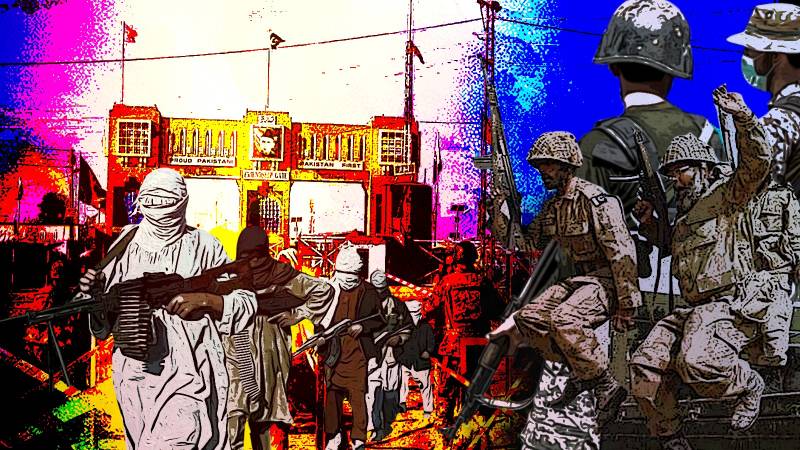
Pakistan is among those countries in the world which has been most affected by terrorism over 30 years. But some special laws and courts created to tackle it have fallen short of expectations in curbing terror activity.
The Supreme Court made these observations on Thursday in a 15-page judgement on a case where a man, Muhammad Hanif, had been sentenced to death in 2011 by an anti-terrorism court for murdering a police official in a local court of Dera Ghazi Khan. The Lahore High Court (LHC) had converted Hanif's death sentence into life imprisonment.
The top court observed that the country began experiencing sustained terrorism in the 1990s. Back then, the terror was primarily perpetrated in the form of sectarian killings.
"Thereafter the wave of terrorist activities further intensified upon a larger canvas. Now the target of terrorism was state functionaries, [officials] holding key positions, and every notable entity from every walk of life, including law enforcing agencies." the apex court further observed.
The verdict was penned by Supreme Court's Justice Syed Mazahir Ali Akbar Naqvi as he upheld the LHC's ruling.
"Use of explosive, sophisticated weapons, bomb blasts, target killing, abduction for ransom, extortion to generate funds for terrorist activities were very common features of crime-oriented outlaws to disrupt the peace of society and create a sense of insecurity in public at large," the top court observed.
The judgment further noted that due to the rise in terrorist activities, the national economy had incurred huge losses, estimated to be in billions of dollars.
"This situation forced the state functionaries to adopt extraordinary measures to preserve the authority of the state," it observed, further adding, "consensus has prevailed amongst the government functionaries to deal with the lawbreakers with iron hands."
Consequently, the court noted that the Suppression of Terrorist Activities (Special Courts) Act of 1975 was promulgated with a special emphasis that there must be no adjournment in the proceedings even if the accused absconds.
Under the law, the salutary principle that the prosecution must prove guilt was reversed, and the burden was put on the accused to prove his innocence.
Justice Naqvi observed that the courts established under this law remained in the field for a considerable period but could not deliver per the expectations, as many flaws surfaced during proceedings before courts of law.
"Therefore, Suppression of Terrorist Activities (Special Courts) Act of 1975 was substituted by the 'Special Courts for Speedy Trial Ordinance 1987'."
This legislation was introduced with a different approach in which the right of one appeal was withdrawn while the only appeal arising out of the judgment of the trial court was to be heard by a bench comprising two judges of the respective high courts, whereas it was to be presided over by a judge of the Supreme Court.
Courts established under this legislation could not continue for long, hence, the framer of the law introduced another law, the "Anti-Terrorism Act, 1997".
The preamble of the said legislation was more exhaustive, cyclopaedic and potent, while the other provisions of the act were framed to provide legal cover to all judicial norms relating to the administration of criminal justice.
It is pertinent to mention that the Anti-Terrorism Act 1997, since its inception, has already undergone judicial review by the Supreme Court in two cases. By way of judicial review, the top court struck down all those provisions of the Act which were found inconsistent with any provision of the "Constitution" and established the principle of "due process".

